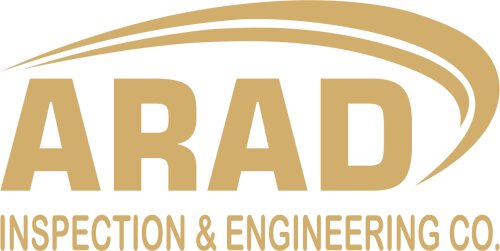Best Energy Regulatory Law Lawyers in Iran
Share your needs with us, get contacted by law firms.
Free. Takes 2 min.
Or refine your search by selecting a city:
List of the best lawyers in Iran
About Energy Regulatory Law in Iran
Energy Regulatory Law in Iran refers to the framework of rules, regulations, and guidelines that govern the production, distribution, and consumption of energy resources across the country. This legal field is primarily concerned with ensuring that the nation’s vast energy resources - particularly oil, natural gas, and electricity - are managed efficiently, responsibly, and in the public interest. The government, through several ministries and authorities, heavily regulates the sector, with special attention paid to pricing, environmental impact, foreign investment, and export policies. Anyone interacting with the Iranian energy sector, whether a business, investor, or consumer, will encounter complex legal controls.
Why You May Need a Lawyer
You may need a lawyer specializing in Energy Regulatory Law in Iran for various reasons. Common situations include navigating the licensing process for energy projects, participating in tenders and contracts, seeking approval for foreign investment, resolving disputes with regulatory authorities, or understanding compliance requirements regarding environmental and safety standards. Additionally, individuals and companies often require legal guidance when dealing with tariffs, subsidies, or joint ventures in the electricity, oil, or gas sectors. Legal support is also critical when disputes arise around energy infrastructure, pollution claims, or regulatory fines and investigations.
Local Laws Overview
Iran’s energy sector operates under a combination of national legislation, government regulations, and ministerial directives. Key aspects include:
- The Constitution of the Islamic Republic of Iran, which vests ownership of all oil and gas resources in the state
- The Petroleum Law and its amendments, establishing the framework for exploitation and administration of oil resources
- Regulations governing the Ministry of Energy for electricity production, distribution, and pricing mechanisms
- Environmental statutes, such as the Clean Air Act and Environmental Protection Law, which impact energy projects
- Foreign investment controls, including requirements under the Foreign Investment Promotion and Protection Act (FIPPA)
- Price controls and subsidies for domestic energy consumption, managed by the government
- Special provisions regarding renewable energy development and private sector participation
- Sanctions compliance, given the impact of international sanctions on Iranian energy dealings
Local laws are subject to frequent changes, judicial interpretations, and updates according to national priorities, making expert legal advice essential.
Frequently Asked Questions
What is the role of government in Iran’s energy sector?
The government owns and controls oil, gas, and most electricity infrastructure, setting policies, prices, and licensing conditions. All major projects and contracts require government approval.
Can foreign companies invest in the Iranian energy sector?
Yes, but foreign investment is tightly regulated. Investors must comply with FIPPA and obtain approvals from relevant ministries and authorities, often through special contracts or partnership models.
How are energy tariffs and prices set in Iran?
The government sets energy prices, often providing subsidies for domestic consumers. Recent reforms aim to rationalize tariffs, but subsidies remain significant in certain sectors.
What environmental regulations apply to energy projects?
Projects must comply with national environmental laws, obtain environmental impact assessments, and follow operational standards to avoid penalties or shutdowns.
What types of contracts are used for oil and gas exploration?
Iran uses several contract types, including buyback contracts, service contracts, and, more recently, the Iran Petroleum Contract (IPC) for structuring agreements with domestic and foreign partners.
Who resolves disputes in the energy sector?
Disputes may be resolved through administrative review, negotiation, Iranian courts, or arbitration, depending on the terms of the contract and legal context.
Are there local content requirements in energy projects?
Yes, laws often require the inclusion of Iranian suppliers, workforce, and technology transfer in major energy projects.
What role do sanctions play in the Iranian energy sector?
International sanctions significantly impact energy exports, foreign investment, and access to technology. Compliance with sanction laws is critical to avoid legal and financial penalties.
How are renewable energy projects regulated?
The government supports renewable energy through special tariffs and incentives, but such projects must still comply with general regulatory, licensing, and environmental requirements.
What should an investor do before starting an energy project in Iran?
Engage a qualified lawyer, conduct thorough due diligence, ensure compliance with investment and environmental laws, secure the necessary licenses, and understand the implications of international sanctions.
Additional Resources
Several key organizations and resources can provide guidance on Energy Regulatory Law in Iran:
- Ministry of Petroleum - sets policies and supervises the oil and gas sectors
- Ministry of Energy - regulates electricity, water, and renewable energy
- Iranian National Oil Company (NIOC) - main operational body for oil and gas
- Iran Energy Efficiency Organization (SABA) - promotes energy saving and efficiency
- Iranian Investment Promotion and Protection Agency (IPPA) - assists foreign investors
- Department of Environment - oversees compliance with environmental regulations
- Local Bar Associations - can help you find reputed energy law specialists
Industry reports, publications from reputable law firms, and updates from Iranian regulatory bodies are also valuable information sources.
Next Steps
If you need legal assistance in Energy Regulatory Law in Iran, consider the following steps:
- Identify the specific legal issue or project you need help with
- Gather all relevant documents and background information
- Consult with a qualified energy regulatory lawyer familiar with Iranian law
- Seek a detailed consultation to understand compliance requirements, risks, and strategic options
- Request assistance with drafting contracts, handling regulatory applications, or representing you in disputes
- Stay informed of changes in laws and regulations to ensure ongoing compliance
Taking these proactive steps will help you navigate the complexities of the Iranian energy legal landscape more confidently and effectively.
Lawzana helps you find the best lawyers and law firms in Iran through a curated and pre-screened list of qualified legal professionals. Our platform offers rankings and detailed profiles of attorneys and law firms, allowing you to compare based on practice areas, including Energy Regulatory Law, experience, and client feedback.
Each profile includes a description of the firm's areas of practice, client reviews, team members and partners, year of establishment, spoken languages, office locations, contact information, social media presence, and any published articles or resources. Most firms on our platform speak English and are experienced in both local and international legal matters.
Get a quote from top-rated law firms in Iran — quickly, securely, and without unnecessary hassle.
Disclaimer:
The information provided on this page is for general informational purposes only and does not constitute legal advice. While we strive to ensure the accuracy and relevance of the content, legal information may change over time, and interpretations of the law can vary. You should always consult with a qualified legal professional for advice specific to your situation.
We disclaim all liability for actions taken or not taken based on the content of this page. If you believe any information is incorrect or outdated, please contact us, and we will review and update it where appropriate.
Browse energy regulatory law law firms by city in Iran
Refine your search by selecting a city.















